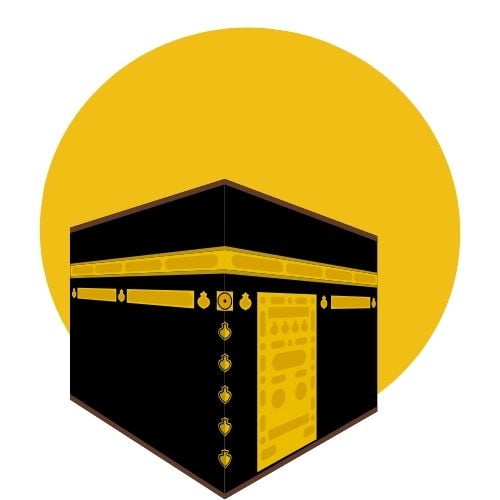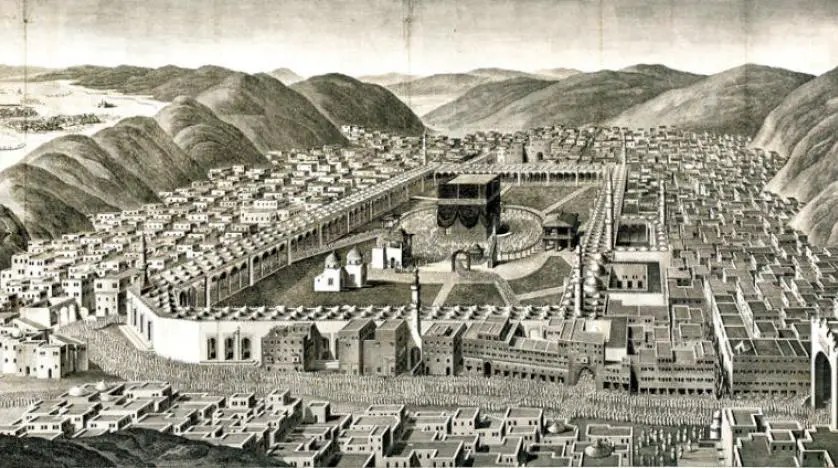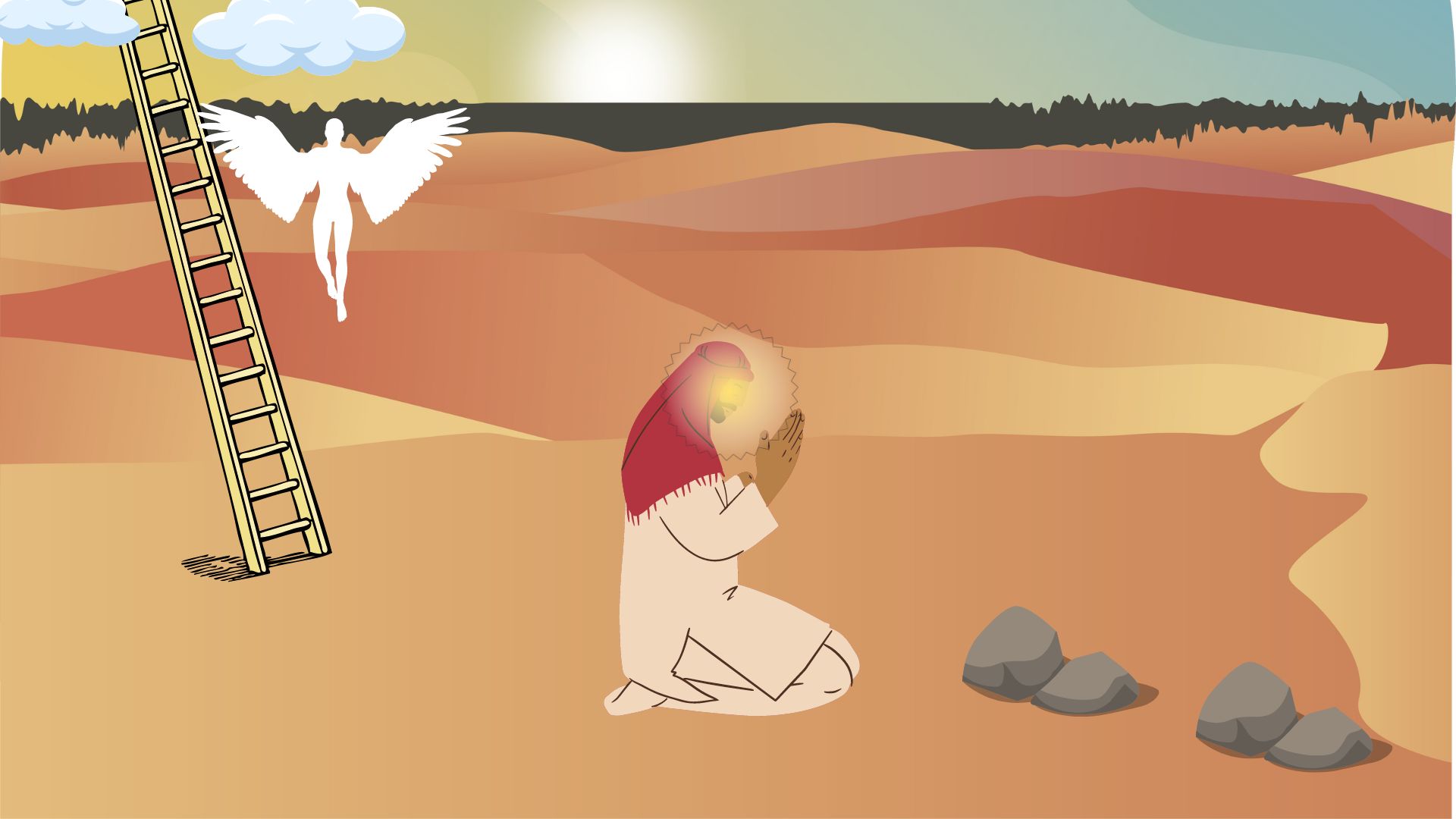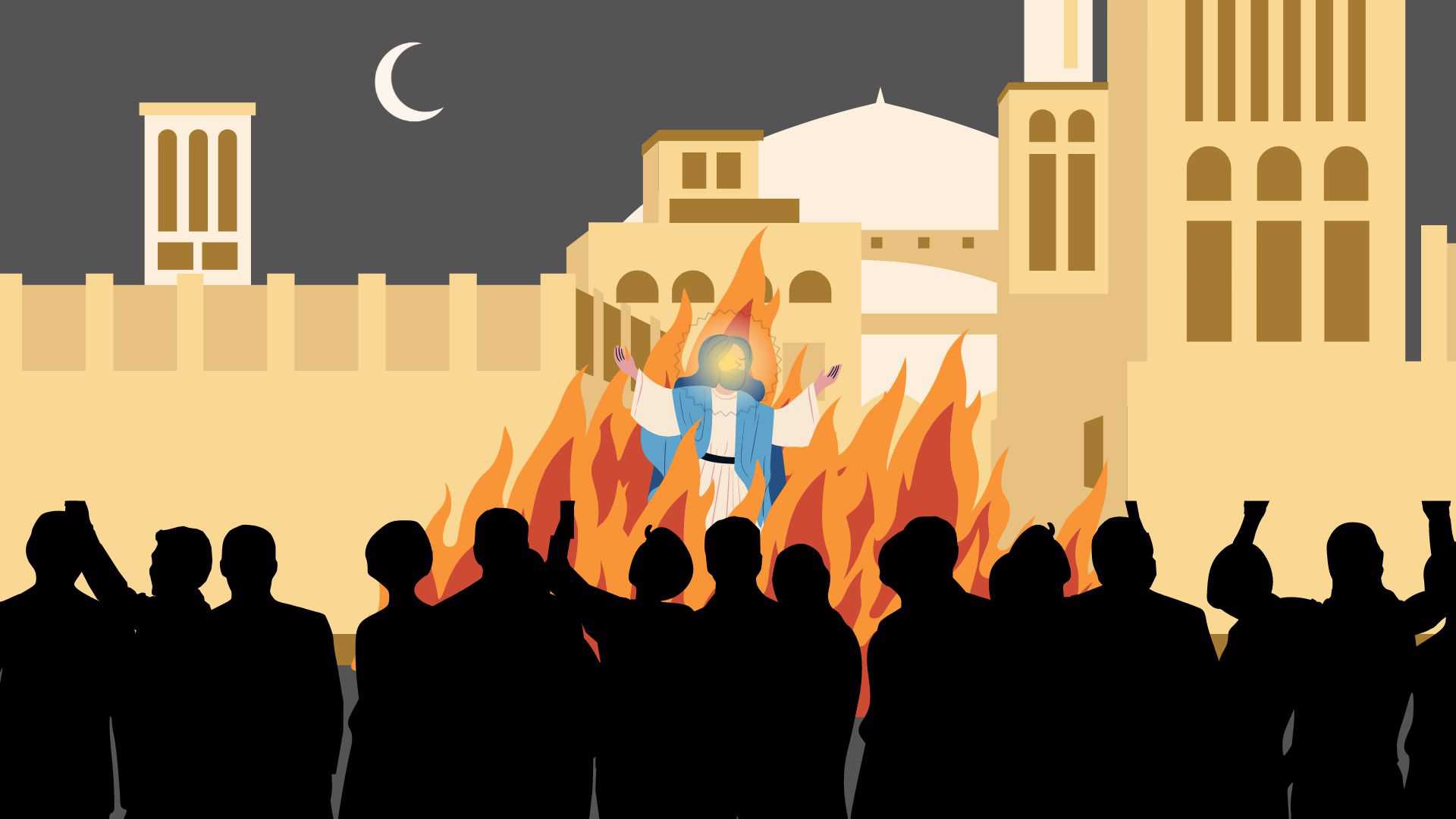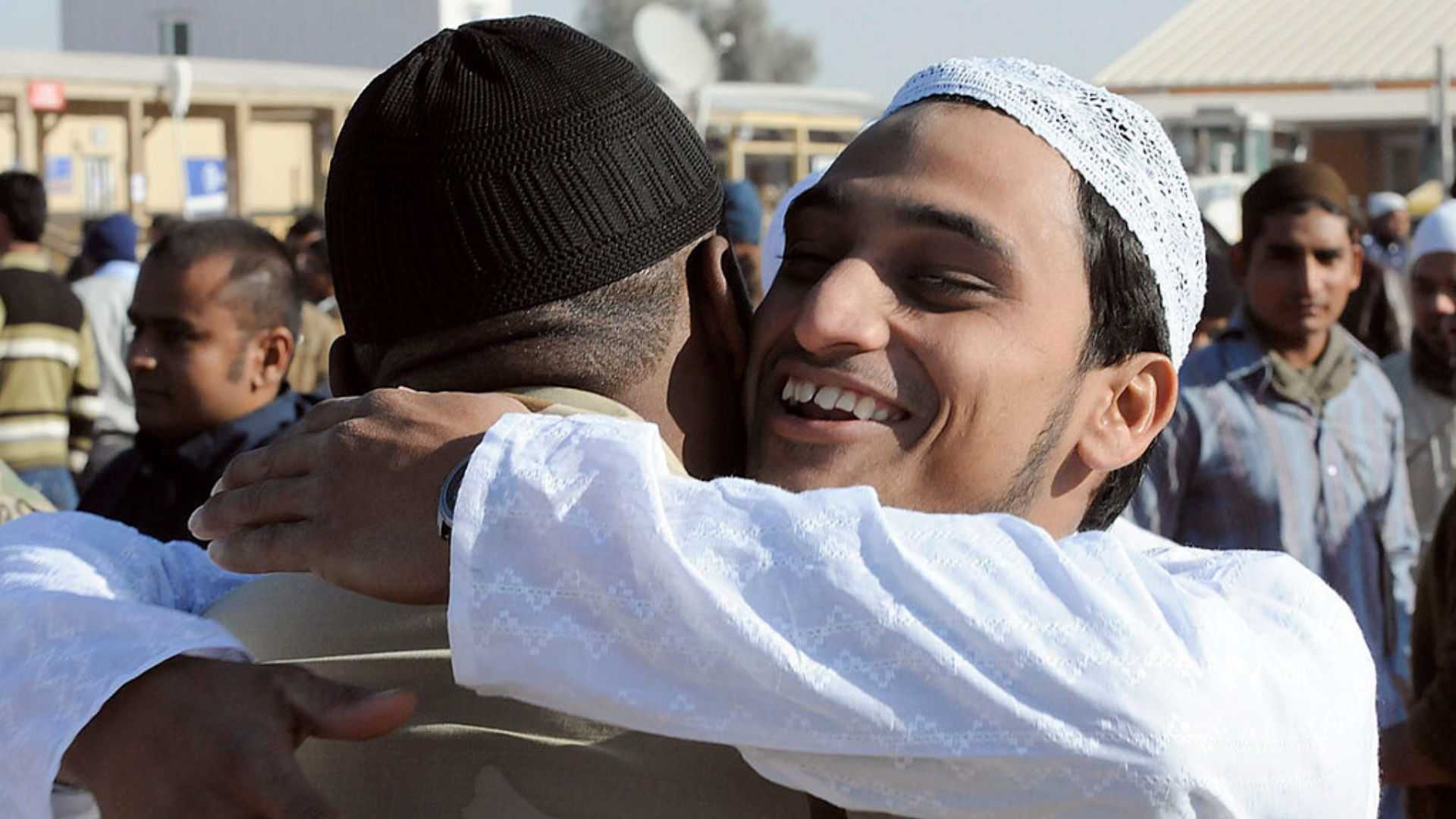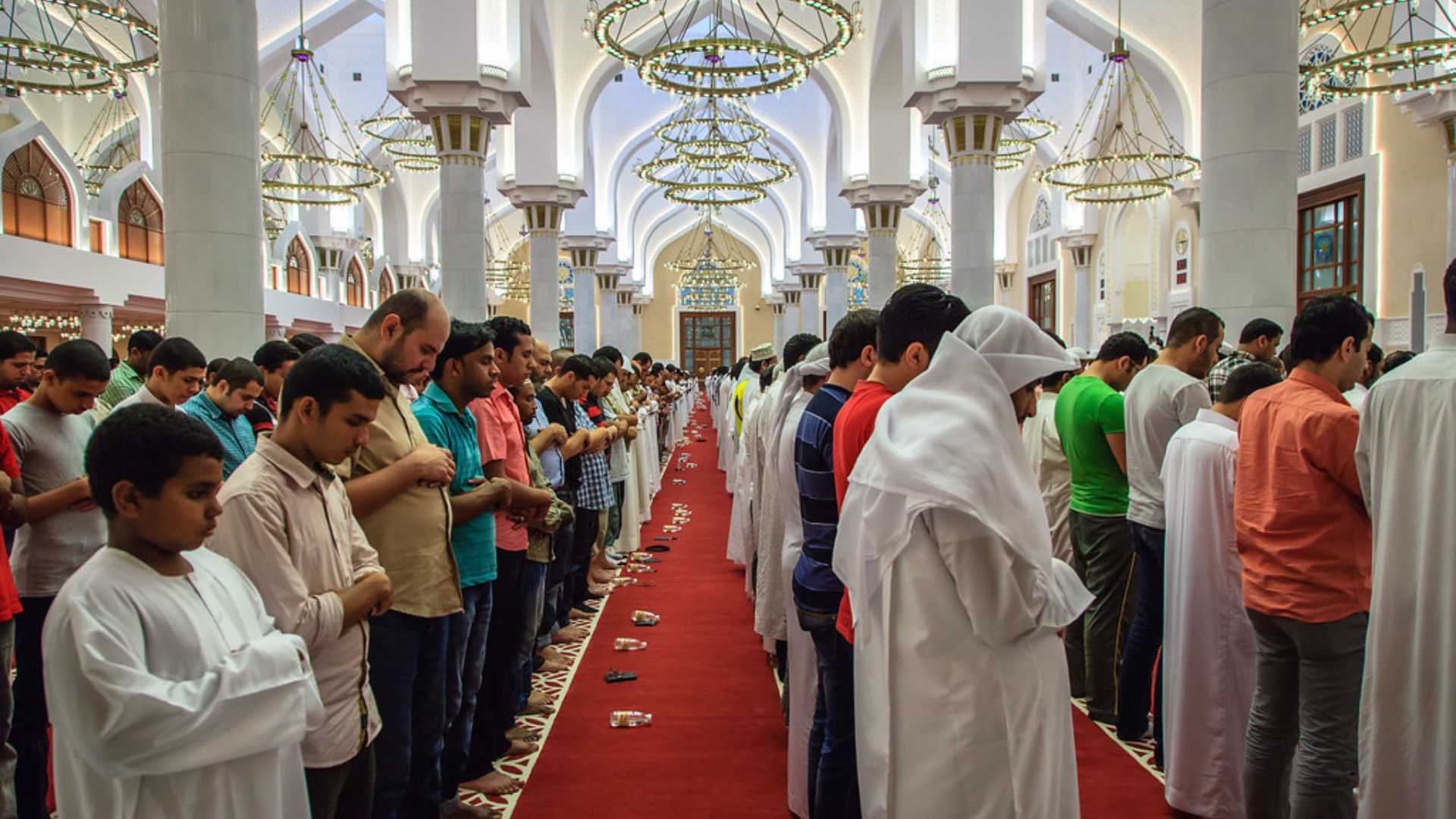Story of Prophet Ismail in Islam: Ibraham (A.S.)’s son, born to Hagar (A.S.) (Hajar or Hajarah), is the historical figure known as Prophet Ismail A.S. (also known as Prophet Ismael) in Judaism, Christianity, and Islam. Ismail (A.S.) is recognized as a prophet and ancestor to the last Prophet, Prophet Mohammed (S.A.W.). Additionally, he came to be connected to Makkah and the building of the Kaaba/Qibla. In this article, we will discuss the full Story of Prophet Ismail (A.S.) and all his life events.
Prophet Ismail’s (A.S.) birth:

Some sources claim that Ismail (A.S.) was born in Palestine in about 1800 BC.
Ibrahim’s (A.S.) first wife, Sarah (A.S.), was aware of her husband’s desire for a child. Since Allah referred to Ibrahim’s (A.S.) dua in the Quran:
“O my Lord! Grant me a righteous (son)!” (Surah Al Saffat 37:100)
She also understood that as she grew older, she might not be able to give Ibrahim (A.S.) a child. She advised Ibrahim (A.S.) to wed her servant Hajar in the hopes that Allah would grant them a child through her. Following the advice of his devoted wife Sarah, Ibrahim (A.S.) wed Hajar. Ibrahim (A.S.) and Hajar soon welcomed a boy, whom they named Ismael/Ismail, into the world. Ibrahim (A.S.) was ecstatic to welcome his first son into the world. They all rejoiced and expressed gratitude to Allah for such a wonderful blessing. Some academics assert that Ibrahim (A.S.) was 86 years old when Ismail (A.S.) was born.
Hajar (A.S.) and Ismail (A.S.) were left alone by Ibrahim (A.S.)
Ibrahim (A.S.) once requested his wife Hajar to go grab their infant son Ismail (A.S.) so they could get ready for a lengthy journey. Ibrahim (A.S.) set out on a voyage with his wife Hajar and their son Ismail (A.S.) in a few days. Ibrahim (A.S.) traveled across the cultivated territory, the Arabian Peninsula’s desert, and mountains before arriving at an uncultivated valley devoid of any fruit, trees, food, or water. After Ibrahim (A.S.) assisted his wife and child in getting off the horse, he gave them a meager supply of food and water, hardly enough for two days. He went away after turning around.
Hajar (A.S.) hurried after him, asking: “Where are you going Ibrahim, leaving us in this barren valley?”
Ibrahim (A.S.) did not respond to her and instead kept moving. She spoke again, but he made no further comment. At last, she understood that Allah had commanded him to act in this manner.
She asked him: “Did Allah command you to do so?”
Ibrahim (A.S.) replied: “Yes.”
Then his great-wife said: “We are not going to be lost since Allah Who Has Commanded you is with us.”
Ibrahim (A.S.) kept strolling. When Ibrahim (A.S.) entered the Thaniya and was hidden from view, he turned to face the Kaaba and prayed to Allah while lifting both hands, saying the following:
“O Our Lord! I have made some of my offspring to dwell in a valley with no cultivation, by Your Sacred House (the Kaaba at Makkah); in order, O our Lord, that they may offer prayers perfectly (Salah) so fill some hearts among men with love towards them, and O Allah provide them with fruits so that they may give thanks. O our Lord! Certainly, You know what we conceal and what we reveal. Nothing on the earth or in the heavens is hidden from Allah.” (Surah Ibrahim 14:37-38)
Hajar’s (A.S.) Search for Water between Safa and Marwa:
In ancient times, neither any person nor water existed in Makkah. The mother of Ismail (A.S.) continued to breastfeed and drink from the water (she had). She and Ismail (A.S.) both experienced thirst when the water in the water skin was depleted. She began to look at her son while writhing in pain. She left him because she could not stand to look at him and discovered that the As-Safa mountain was the closest one to her in that region. She climbed up on it and began watching the valley intently in the hopes of spotting someone, but she was unable to do so. Then she descended toward As-Safa, tucked her robe away, and hurried through the valley like a person in distress until she passed it and arrived at the peak of Al-Marwa. She looked about as she stood there hoping to see someone, but she was unable to. Seven times, she did that running between Safa and Marwa.
Hajar (A.S.) finds Zam-zam:
The Prophet Mohammad (S.A.W.) said:
“This is the source of the tradition of the Sa’y (one of the rituals of the Hajj pilgrimage) the going of people between them (As-Safa and Al-Marwa). When she reached Al-Marwa (for the last time) she heard a voice and she asked herself to be quiet and listened attentively. She heard the voice again and said:
“O whoever you maybe! You have made me hear your voice; have you got something to help me?”
And behold! She saw an angel at the place of Zam-zam, digging the earth with his heel (or his wing) till water flowed from that place. She started to make something like a basin around it, using her hand in this way, and started filling her water-skin with water with her hands and the water was flowing out water she had scooped some of it.”
The Messenger of Allah (S.A.W.) added:
“May Allah bestow mercy on Ismail’s (A.S.) mother! Had she let the Zam-zam flow without trying to control it, or had she not scooped from that water to fill her water skin, Zam-zam would have been a stream flowing on the surface of the earth.”
(Sahih Al-Bukhari: 3362 and 3363)
The Settlement in Makkah:
Prophet Mohammad (S.A.W.) continued:
“Then she (Hajar) drank water and suckled her child. The angel said to her:
“Don’t be afraid of being neglected, for this is the House of Allah which will be built by this boy and his father, and Allah never neglects His people.”
When torrents occurred, they flowed to the House’s right and left because it was at that time located on a high, hill-like area. She continued living in this manner up until a family or a few members of the Jurhum tribe walked by her and her child as they (the Jurhum people) were traveling along the Way of Kada. When they landed, they noticed a bird that liked to circle the lake and never leave it at the lower section of Makkah. They said:
“This bird must be flying around water, though we know that there is no water in this valley.”
They dispatched one or two messengers, who found the water’s source and came back to tell them about it. they all moved in the direction of the river. The mother of Ismail (A.S.) was sitting by the water. Their question was:
“Do you allow us to stay with you?”
She replied: “Yes, but you will have no right to possess the water.”
That was accepted by them. They moved there, and subsequently, they sent for their families who arrived and established with them so that some families became permanent residents there. Ismail’s (A.S.) mother was happy with everything because she used to love to enjoy the company of people. When the youngster (Ismail A.S.) reached maturity, they made him marry a woman from among them. As the boy grew up and learned Arabic from them, (his virtues) made them adore and admire him.”
The Wives of Ismail (A.S.)
The Prophet (S.A.W.) went on to say:
“Ibrahim (A.S.) arrived after Ismail (A.S.) was married to visit his family after Ishmael’s mother passed away, but he could not find Ismail (A.S.) there. He enquired about him to Ismail’s (A.S.) wife.
She replied: “He has gone in search of livelihood.”
Then he asked her about their way of life and their condition, and
She replied: “We are living in misery; we are living in hardship and destitution.”
Ibrahim (A.S.) said: “When your husband returns, convey my salutations to him and tell him to change the threshold of the gate (of his house).”
When Ismail (A.S.) came, he seemed to have felt something odd, so he asked his wife:
“Has anyone visited you?”
She replied:
“Yes, an old man of such and such description came and asked me about you and I informed him and he asked about our state of living and I told him that we were living in a hardship and poverty.”
On that Ismail (A.S.) said:
“Did he advise you anything?”
She said:
“Yes he told me to convey his salutation to you and to tell you to change the threshold of your gate.”
Ismail (A.S.) said:
“It was my father and he has ordered me to divorce you. Go back to your family.”
Ismail (A.S.) therefore divorced her and wed a different woman from amongst them (Jurhum).
Prophet Muhammad (S.A.W.) continued:
“Then Ibrahim (A.S.) stayed away from them for a period as long as Allah wished and called on them again but did not find Ismail (A.S.). So he came to Ismail’s (A.S.) wife and asked her about Ismail (A.S.).
She said: “He (Ismail) has gone in search of our livelihood.”
Ibrahim (A.S.) asked her: “How are you getting on?’ asked her about their sustenance and living.
She replied: “We are prosperous and well off (we have everything in abundance).” Then she thanked Allah.
Ibrahim (A.S.) said: “What kind of food do you eat?”
She said: “Meat.”
Ibrahim (A.S.) said: “What do you drink?’
She said: “Water.”
He said: “O Allah! bless their meat and water.”
The Prophet (S.A.W.) added:
“At that time they did not have grain and if they had grain he would have also invoked Allah to bless it. If somebody has only these two things as his sustenance, his health and disposition will be badly affected unless he lives in Makkah.”
The Prophet (S.A.W.) continued:
“Then Ibrahim (A.S.) said to Ismail’s (A.S.) wife: “When your husband comes, give my regards to him and tell him that he should keep firm the threshold of his gate.”
Ismail (A.S.) asked his wife when he came back:
“Did anyone call on you?”
She replied: “Yes, a good-looking old man came to me,” so she praised him and added: “He asked about you and I informed him that we were in a good condition.”
Ismail (A.S.) asked her:” Did he give you any piece of advice?
She said: “Yes, he told me to give his regards to you and ordered that you should keep firm the threshold of your gate.”
On that Ismail (A.S.) said: “He was my father, and you are the threshold of the gate. He has ordered me to keep you with me.”
Kaaba’s construction:
Then Ibrahim (A.S.) withdrew from them for however long Allah wished before calling on them again. He observed Ismail (A.S.) honing his arrows beneath a tree not far from Zam-Zam. He stood up to meet Ibrahim (A.S.) when he spotted him (and they greeted each other as a father does with his son or a son does with his father). A.S. Ibrahim said:
“O Ismail! Allah had given me an order.”
Ismail (A.S.) said:
“Do what your Lord has ordered you to do.”
Ibrahim (A.S.) asked:
“Will you help me?”
Ismail (A.S.) said:
“I will help you.”
Ibrahim (A.S.) said:
“Allah has ordered me to build a house here,” indicating a hilltop that is taller than the surrounding terrain.
Then they built the House’s foundation (the Kabaa). While Ibrahim was constructing, Ismail (A.S.) brought the stones. When the walls reached a certain height, Ismail (A.S.) brought this stone—known as Al-Maqam or Maqam-e-Ibrahim in Kabaa—and set it aside for Ibrahim, who continued to work over it. He received the stones from Ismail (A.S.), and they both said:
“Our Lord! Accept this service from us, verily, You are the All Hearer, the All Knower.” (Surah Al-Baqarah: 2:127)
Moreover, the Prophet (S.A.W.) said:
“Then both of them went on building and going round the Kabaa saying: “O our Lord! Accept this service from us, verily, You are the All Hearer, the All Knower.”
This was a significant event in the Story of Prophet Ismail (A.S.). However, Kabaa has often been destroyed, according to history, and reconstructed. Since the time of the Prophet Ibrahim (A.S.), Kabaa has stood intact. The amount of effort Prophets Ibrahim (A.S.) and Ismail (A.S.) put into building the Kabaa was greater than that of thousands of men.
Allah only discloses information that is more significant and beneficial, omitting information concerning when the Kaaba was built. He speaks of the holiness of the souls of Ibrahim (A.S.) and Ismail (A.S.) and their prayers throughout construction.
The Black Stone, Hajar al-Aswad
Incorporated on the southeast wall of the Kabaa is a black stone known as Hajar al-Aswad. The history of the stone and its placement in the Kaaba wall are described differently in several narratives. The stone continues to hold the same significance and respect across all of the stories, and it is treated with the same level of holiness and sacredness.
The story that Hajar al-Aswad is a stone from Jannah (paradise) that was set in Kabaa by Prophet Ibrahim (A.S.) and his son Prophet Ismail is the most significant and trustworthy of the several legends. The tradition claims that when Prophet Ibrahim (A.S.) and his son finished building Kabaa, they were short one stone for the walls. In order to finish building the holy site, Prophet Ibrahim (A.S.) gave the order to Ismail (A.S.) to search for a stone that would fit in the gap. Ismail (A.S.) left in quest of the stone but returned to his father and family after some time had passed and he had not found any acceptable rock.
When he returned to his father, he discovered that a rock had already been placed there. When he inquired about the stone, Ibrahim (A.S.) informed him that the angel Gabriel (A.S.) had brought it to him. This story so establishes the holy stone status of Hajar al-Aswad.
This Hadith demonstrates that Hajar al-Aswad is a stone that originated in Jannah and was first pure white before beginning to turn black due to the progression of humanity’s rising misdeeds.
The Sacrifice of Ismail (A.S.):
Allah the Almighty told us of Ibrahim’s (A.S.)’s pain with his beloved son:
“And he said after his rescue from the fire: ‘Verily! I am going to my Lord. He will guide me! My Lord! Grant me (offspring) from the righteous.” So We gave him the glad tidings of a forbearing boy. And when he (his son) was old enough to walk with him, he said: “O my son! I have seen in a dream that I am slaughtering you (offer you in sacrifice to Allah), so look what do you think!” “O my father! Do that which you are commanded Insha Allah (if Allah wills), you shall find me of the patient.” Then when they had both submitted themselves to the Will of Allah and he had laid him prostrate on his forehead (or on the side of his forehead for slaughtering); and We called out to him: “O Ibrahim! You have fulfilled the dream (vision!” Verily! Thus do We reward those who perform good deeds, totally for Allah’s sake only. Verily, that indeed was a manifest trial and We ransomed him with a great sacrifice (a ram;) and We left for him (a goodly remembrance) among generations (to come) in later times. “Salamun (peace) be upon Ibrahim!” Thus indeed do We reward the Muhsineen (good doers). Verily, he was one of Our believing slaves. (Surah Al Saffat 37: Ayat 99 to 111)
Ibrahim (A.S.) was once outside his tent, contemplating the sacrifice of his son Ismail (A.S.) as asked by Allah. His heart was overflowing with reverence and love for Allah for all of His mercies. Although a large tear fell from his eyes and made him think about Ismail (A.S.), he was ready to obey Allah’s order and carry out his instructions. Along with a knife and rope, he traveled to Mount Arafat with his son Ismail (A.S.). When he arrived, he told his son about his dream and the instructions Allah SWT had given him. Prophet Ismail (A.S.) instantly complied as a dutiful son and requested that his wrists and legs be restrained so that he wouldn’t struggle, as well as that his father put on a blindfold so that he wouldn’t have to suffer by seeing such a scene.
Ibrahim (A.S.) carried out Ismail’s (A.S.) suggestions. He followed Allah’s commands while wearing a blindfold and holding a knife in his hands. To his amazement, when he removed the blindfold, he was met with the sight of a dead ram in front of him. Ismail (A.S.) was standing right next to him, absolutely uninjured. He initially believed that things had gone dreadfully wrong and that he had ignored his Creator’s command. He then heard a voice reassuring him that he should not be concerned because Allah looks after his believers.
Good News about Ishaq (Isaac)
Gabriel, Israphael, and Michael were the three angels who came to earth. They saluted Ibrahim (A.S.) when they appeared in human form. Risen, Ibrahim (A.S.) greeted them. They entered his tent under the impression that he was hosting visitors and strangers. After seating them and ensuring their comfort, he took leave to attend to his people. When he entered, Sarah, his wife, got up. She was now elderly and had white hair.
Ibrahim (A.S.) said to her: “We have three strangers in the house.”
“Who are they?” she asked.
“I do not know any of them,” he answered.
“What food have we got?” He asked.
“Half a sheep.” she replied.
“Half a sheep! Slaughter a fat calf for them; they are strangers and guests,” Ibrahim (A.S.) ordered while leaving.
A calf was grilled and served by the servants. Ibrahim (A.S.) invited the angels to eat and then he began to eat to cheer them. While speaking, he realized that none of his guests had touched the food when he looked at them to make sure they were all eating.
He said to them: “Are you not going to eat?”
He picked up his meal again, but as he looked over, he noticed that they had not yet eaten. They did not grab the meal with their hands. They started to scare him. The anxiety of Ibrahim (A.S.) intensified. However, the angels were able to read his thoughts, and one of them said:
“Do not fear.” Ibrahim (A.S.) replied as he raised his head: “Indeed I am in fear. I have asked you to eat food but you do not stretch out your hands to eat. Do you intend me evil?”
One of the angels said while smiling: “We do not eat. We are Allah’s angels.”
Then one of them turned to face his wife and told her the good news about Isaac (Ishaaq A.S.).
In the Qur’an, Allah has revealed:
“Verily! There came Our Messengers to Abraham with glad tidings. They said: “Salaam (greetings or peace)!” he answered: “Salaam (greetings or peace)!” and he hastened to entertain them with a roasted calf. But, when he saw their hands went not towards it (the meal), he felt some mistrust of them and conceived a fear of them. They said: “Fear not, we have been sent against the people of Lot.” And his wife was standing there and she laughed (either, because the Messengers did not eat their food or for were glad for the destruction of the people of Lot). But We gave her glad tidings of Ishaq (Isaac), and after him of Yaqub (Jacob). She said (in astonishment): “Woe unto me! Shall I bear a child while I am an old woman, and here is my husband an old man? Verily! This is a strange thing!” They said: “Do you wonder at the Decree of Allah? The Mercy of Allah and His Blessings be on you, O the family (of Abraham). Surely, He (Allah) is All praiseworthy, All-Glorious.” (Surah Hud 11:69-73)
Ismail’s (A.S.) Prophethood:
Ismail (A.S) was then given the role of a prophet by Allah. He charged him with leading the Amalika people of Yemen. Some reports claim that Ismail (A.S.) spent fifty years residing with these people while delivering the divine message and directives. While some of them insisted on their skepticism and polytheism, others did believe in him.
Regarding Ismail’s (A.S.) status as a prophet, Allah declares in the Quran:
“And mention in the Book (the Quran) Ismail (Ishmael). Verily! He was true to what he promised, and he was a Messenger, (and) a Prophet. And he used to enjoin on his family and his people As-Salat (the prayers) and the Zakat, and his Lord was pleased with him.” (SurahMaryam 19:54 and 55)
Ismail (A.S.) behaved in conformity with this guiding principle, as is evident from the Quranic declaration. He initiated his family members into the faith, followed by himself, and then he spread its teachings throughout his country.
Prophet Ismail (A.S.) Death:
Ismail (A.S.) had a life of hundred and thirty, or a hundred and thirty-seven, years after which he died. According to reports, he had twelve sons. Ismail (A.S.) reportedly lived in Makkah till his passing. According to many reports, Ismail (A.S.) is interred in Masjid Al-Haram close to Kabaa with his mother Hajar.
This was the Story of Prophet Ismail (A.S.), an obedient son and a pious servant of Allah.
Lessons Learned from the Story of Prophet Ismail (A.S.)
As children or as Parents, we can learn a lot of things from the Life and Story of Prophet Ismail (A.S.).
- Always obey your Parents as they know what is right for you.
- Always have faith in Allah even in dire situations, as Allah tests his pious servants the most.
- Marry a pious and humble woman
- Pray to Allah and give to charity
- Help your Parents: In Daily Routines or Bigger Tasks.
May we learn something valuable from the Story of Prophet Ismail (A.S.) and become pious and obedient to Allah and respect our parents.
Read more Prophet Stories or Follow us on social media for daily Islamic reminders.

